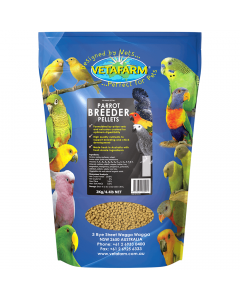Get $10 Off Your First Order! *
Sign up for our newsletter to get first access to our biggest sales, giveaways, and announcements!

There is no doubt that bird food impacts the health and longevity of our feathered friends. Dr Carl carries all types of bird food, including parakeet, finch, canary, cockatiel, lovebird, and dove & pigeon food. Nutrient-dense foods such as grains, seeds, nuts, and other healthy ingredients are essential to the health of birds.
There are several factors to consider when choosing the right food. Many birds prefer food that has a blend of colors, textures, shapes, and sizes. By feeding your bird high-protein bird food, they will ensure he gets the nutrition he needs. A variety of foods will also keep your bird mentally stimulated, requiring it to put some thought into every bite. The inclusion of prebiotics and probiotics in bird food is another important feature to look for. Prebiotics feed probiotics and help them flourish in the gut. Probiotics are healthy forms of bacteria.
With their inclusion in your bird's mealtime, you can maintain a balance between beneficial and unfavorable bacteria, ensuring he maintains good digestion. If you provide your bird with food containing omega-3 fatty acids, it will remain healthy and happy. Essential fatty acids also prevent ruffled feathers caused by skin and plume issues due to their excellent skin and feather support. Fruits, berries, vegetables, and sprouts are also powerful antioxidants that contribute to the health and immunity of birds.
Bird food contains antioxidants such as vitamins A, C, and E, beta-carotene, lutein, and alpha-lipoic acid. You must keep in mind that switching to a new bird food can take some time. Instead of simply replacing your bird's food with a new one, mix the old and new blends over a period of seven to ten days. After you blend the old and new blends, you can serve 25 percent of the new blend and 75 percent of the old blend. Repeat this process for a few days. Once your flying buddy has adjusted to the new food, you can feed it exclusively.
You can find more bird-related supplies here:
Accessories for Birds, Bird Cages, and Bird Treats
Newborn birds are fed by their parents. It is usually the parent's responsibility to soften and hydrate the bird food before allowing the little birds to consume it. In general, baby birds eat the same foods as adults of their species, usually worms, insects, and seeds. As parents usually care for baby birds, you shouldn't feed them yourself, and you shouldn't give abandoned birds unprocessed worms, insects, or seeds. Find a licensed rehabber or consult an expert if you find an abandoned baby bird.
Feeding birds in your area requires choosing bird food adapted to the type and season of the birds you want to feed. Hummingbirds prefer nectar, rather than sunflower seeds or seed and grain mixes. Bird food comes in a variety of types, including low-mess mixes, single-seed varieties, and blocks you can hang by themselves. You should check the package directions to determine if a particular bird food is best suited to the birds in your area.
© 2022 DRCARL.COM.AU PTY LTD | Tel: 1800 DR CARL (1800 372 275) | International Clients: +61 7 5476 5468